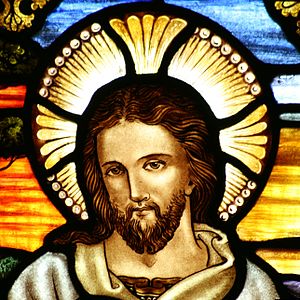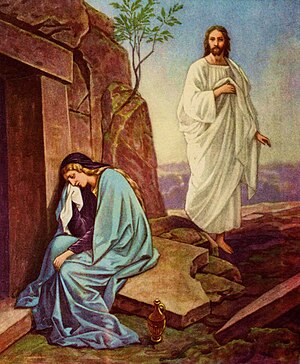Luke 2:1-20
 | |||
| The Adoration of the Shepherds, by Dutch painter Gerard van Honthorst, 1622. |
Introduction
Here we have the story of how the Son of God came to earth. He was born of a woman. God became a man. He laid aside His glory for a time, never His deity.
I. A Humble Beginning
His earthly parents traveled to Bethlehem of Judea, their ancestral home, from where they were living in Galilee. They made the trip in response to a decree of the Roman emperor, Caesar Augustus. The decree was that everyone must be enrolled, in a census taken for the purpose of taxation.
Joseph and his wife were not able to find accommodations in an inn, so they had to take shelter in a stable, possibly in a courtyard of a humble inn. The word translated manger means a place where animals are fed, so could mean a feeding trough or a stable.
Mary gave birth there in that humble stable, and wrapped her Baby in cloths and laid Him in a manger. That she wrapped Him herself indicates it was a lonely birth, for there were no female relatives or friends there to help her.
She knew, though, that this Child was born in fulfillment of what the angel told her, and that she gave birth as a virgin.
II. A Glorious Announcement
As it happened, there were some shepherds in that region, watching over their flocks by night. Since the sheep they were caring for were in the vicinity of Bethlehem, it is likely they were sheep destined for sacrifice in the Temple.
Shepherds were not highly regarded in the society of that day, and in fact were despised, that is, lightly and contemptuously regarded. They were considered untrustworthy and weren’t even allowed to give testimony in court.
The shepherds mentioned here however, were probably devout men, even if ceremonially unclean, and God chose them to be the Lord’s first visitors. For them, it was a great honor.
The angels gave such a spectacular display it was very frightening to the shepherds, and the angel had to reassure them. Then they announced to these humble shepherds that the Savior of the world had been born in Bethlehem, and that it was an occasion of good news that would bring great joy. The shepherds didn’t waste time puzzling over why God would choose to tell them about it. Rather, they took the opportunity, and rejoiced at their good fortune.
III. A Joyful Visit
Following the angel’s instruction, they soon found the Baby, and joyfully worshipped Him. It was a moment that must have been vividly remembered for the rest of their lives.
They had nothing to bring, except their worship and good wishes.
They were overjoyed at their privilege.
The could not keep from telling others, everyone they met, about what they had seen. The Bible says that those they told wondered at what the shepherds had said. Although the people didn’t quite know what to make of it, they knew something very unusual had happened. The shepherds returned to their sheep glorifying God.
Mary “treasured all these things, pondering them in her heart” (v. 19).
IV. An Example for Today
The shepherds gave a great example of how the Savior should be greeted. Even Caesar, who gave the order for the census, should have been there worshipping Christ. People today should follow the example of the shepherds:
A. They learned who Jesus was and how He could be found.
God reveals to people today who is blessed Son is, as Savior and Lord, and through the
proclamation of the Gospel, we learn how we can find Him.
B. They sought Him in faith.
Once a person hears about who Jesus is, the wisest thing to do is seek Him in faith. The shepherds weren’t necessarily men of great faith, but they exercised the faith they had and trusted in the angel’s message. They followed the instructions and soon found the Lord.
C. They rejoiced when they found Him.
When a lost sinner finds Jesus, it is an occasion for great rejoicing. There is rejoicing in heaven over one sinner being saved. The shepherds knew this was a wonderful thing. Can you imagine how they tried to share this news with others? When Christ comes into our lives, we will naturally want to tell others. And not just at that moment, but from then on.
The shepherds were probably telling people about their experience from then on! When the wise men sought Jesus, we are told that “when they saw the star, they rejoiced with exceedingly great joy.”
Here we have the story of how the Son of God came to earth. He was born of a woman. God became a man. He laid aside His glory for a time, never His deity.
I. A Humble Beginning
His earthly parents traveled to Bethlehem of Judea, their ancestral home, from where they were living in Galilee. They made the trip in response to a decree of the Roman emperor, Caesar Augustus. The decree was that everyone must be enrolled, in a census taken for the purpose of taxation.
Joseph and his wife were not able to find accommodations in an inn, so they had to take shelter in a stable, possibly in a courtyard of a humble inn. The word translated manger means a place where animals are fed, so could mean a feeding trough or a stable.
Mary gave birth there in that humble stable, and wrapped her Baby in cloths and laid Him in a manger. That she wrapped Him herself indicates it was a lonely birth, for there were no female relatives or friends there to help her.
She knew, though, that this Child was born in fulfillment of what the angel told her, and that she gave birth as a virgin.
II. A Glorious Announcement
As it happened, there were some shepherds in that region, watching over their flocks by night. Since the sheep they were caring for were in the vicinity of Bethlehem, it is likely they were sheep destined for sacrifice in the Temple.
Shepherds were not highly regarded in the society of that day, and in fact were despised, that is, lightly and contemptuously regarded. They were considered untrustworthy and weren’t even allowed to give testimony in court.
The shepherds mentioned here however, were probably devout men, even if ceremonially unclean, and God chose them to be the Lord’s first visitors. For them, it was a great honor.
The angels gave such a spectacular display it was very frightening to the shepherds, and the angel had to reassure them. Then they announced to these humble shepherds that the Savior of the world had been born in Bethlehem, and that it was an occasion of good news that would bring great joy. The shepherds didn’t waste time puzzling over why God would choose to tell them about it. Rather, they took the opportunity, and rejoiced at their good fortune.
III. A Joyful Visit
Following the angel’s instruction, they soon found the Baby, and joyfully worshipped Him. It was a moment that must have been vividly remembered for the rest of their lives.
They had nothing to bring, except their worship and good wishes.
They were overjoyed at their privilege.
The could not keep from telling others, everyone they met, about what they had seen. The Bible says that those they told wondered at what the shepherds had said. Although the people didn’t quite know what to make of it, they knew something very unusual had happened. The shepherds returned to their sheep glorifying God.
Mary “treasured all these things, pondering them in her heart” (v. 19).
IV. An Example for Today
The shepherds gave a great example of how the Savior should be greeted. Even Caesar, who gave the order for the census, should have been there worshipping Christ. People today should follow the example of the shepherds:
A. They learned who Jesus was and how He could be found.
God reveals to people today who is blessed Son is, as Savior and Lord, and through the
proclamation of the Gospel, we learn how we can find Him.
B. They sought Him in faith.
Once a person hears about who Jesus is, the wisest thing to do is seek Him in faith. The shepherds weren’t necessarily men of great faith, but they exercised the faith they had and trusted in the angel’s message. They followed the instructions and soon found the Lord.
C. They rejoiced when they found Him.
When a lost sinner finds Jesus, it is an occasion for great rejoicing. There is rejoicing in heaven over one sinner being saved. The shepherds knew this was a wonderful thing. Can you imagine how they tried to share this news with others? When Christ comes into our lives, we will naturally want to tell others. And not just at that moment, but from then on.
The shepherds were probably telling people about their experience from then on! When the wise men sought Jesus, we are told that “when they saw the star, they rejoiced with exceedingly great joy.”
When we receive Christ we’ll rejoice. We must rejoice when we know it’s really true! At this Christmas season, are you rejoicing over the salvation of the Lord? That’s why Jesus came - to offer salvation and eternal life to all who receive Him by faith. He made the full payment for the sins of all believers by His sacrificial death, burial and resurrection. Let’s pray that people will come to understand who He is and will seek Him in faith.
Merry Christmas!
Merry Christmas!
(Note: written for publication in December, but not published due to my error. Apologies.)













